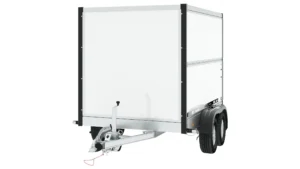Revolutionizing Heavy Load Handling: The Power of All-Terrain Forklifts
2025-07-13 04:05:26
The all-terrain forklift is designed to tackle the most challenging environments, from construction sites to agricultural fields. Unlike conventional forklifts, these machines feature reinforced tires, advanced suspension systems, and powerful engines capable of navigating mud, gravel, and steep inclines. According to industry reports, the global demand for all-terrain forklifts is projected to grow at a CAGR of 6.8% from 2023 to 2030, driven by expanding infrastructure projects and warehouse automation.
One of the standout features of the all-terrain forklift is its adaptability. Equipped with four-wheel drive and hydraulic stabilization, it ensures stability even on rough terrain. Manufacturers like Toyota, Caterpillar, and JCB have introduced models with load capacities exceeding 10,000 lbs, making them indispensable in sectors like mining and forestry. A 2022 study by McKinsey highlighted that all-terrain forklifts reduce operational downtime by 35% compared to traditional models, thanks to their rugged design and low maintenance requirements.
Safety remains a top priority in the development of all-terrain forklifts. Modern units incorporate AI-driven collision avoidance systems and real-time load monitoring to prevent accidents. For instance, the latest model from Hyster-Yale includes 360-degree cameras and automatic braking, significantly reducing workplace injuries. Industry experts predict that by 2025, over 60% of all-terrain forklifts will feature autonomous capabilities, further enhancing efficiency in logistics and construction.
The economic impact of all-terrain forklifts cannot be overstated. In the U.S. alone, their adoption has led to a 20% increase in productivity for outdoor material handling tasks. Companies like Amazon and FedEx are increasingly deploying these machines in their distribution centers to handle oversized cargo. With advancements in electric powertrains, the next generation of all-terrain forklifts promises zero emissions, aligning with global sustainability goals.
In conclusion, the all-terrain forklift represents a critical innovation in industrial machinery. Its ability to operate in diverse conditions, coupled with cutting-edge safety features, positions it as a cornerstone of modern logistics. As technology evolves, these machines will continue to redefine efficiency and reliability in material handling worldwide.








